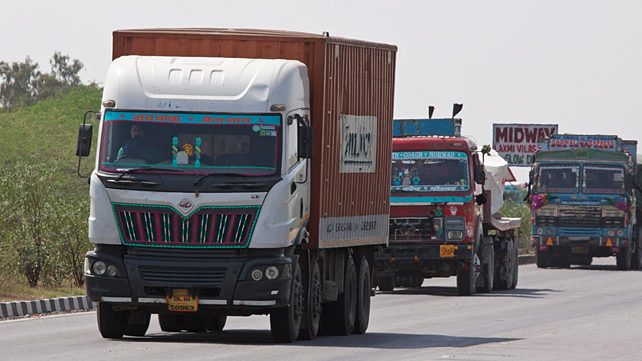
The second wave of COVID halted the growth momentum for the domestic logistics sector during Q1 FY22, with a consequent impact on revenues and earnings on a Q-o-Q basis. However, the relaxation of lockdowns, the normalcy of business activities, and the rising pace of vaccination improved the economic activities and consequently the demand for logistics in Q2FY22. The research and rating agency ICRA estimates that the sector is likely to grow between ~6-9% in FY22, in line with its previous estimates, demand, however, shall remain sensitive to any further external shocks like the impact of a further wave, given the sector’s vulnerability to economic activity on an aggregate basis The sector has witnessed a moderation in freight volumes sequentially across different segments (road, rail and sea) in Q1FY22 as the resurgence of COVID-19 cases by the end of Q4FY21 stalled the economic recovery that was visible across most sectors during H2FY21. Given the impact of the second wave on most end-user industries and accordingly, freight movement was affected. However, this apart, the effect of commodity inflation was significant on the earnings profile of logistics players.
Suprio Banerjee, Vice President & Sector-Head, ICRA Ratings, said that stunted demand recovery due to resurgence in COVID-19 cases in Q1FY22 led to a decline in overall industry revenues 17.5% Q-o-Q. However, there has been a gradual revival in Q2FY22 due to the aforementioned factors, which is also reflected by a steady rise in monthly e-way bill volumes and FASTag volumes since May-21. “We expect a broad-based recovery across end-user sectors in H2FY22, and accordingly, the higher scale of operations is likely to see improved earnings despite the effect of higher operating costs amidst diesel price inflation. Though business performance remained muted over Q1FY22, the sector is likely to grow between ~6-9% in FY22, in line with our previous estimates.” Overall, the aggregate revenues of ICRA’s sample of logistics companies declined on a Q-o-Q basis in Q1FY22 by 17.5% over Q4FY21; the average e-way bill generations too dipped in Apr-May-21 sequentially. However, positive factors have resulted in monthly FASTag volumes ramping up to five-month highs in August 2021, given the absence of stringent lockdown restrictions as witnessed during the first wave. On a sequential basis, monthly FASTag volumes increased by 22% and 5% in July 2021 and August 2021, respectively and e-way bill volumes grew by 17% and 3% in July 2021 and August 2021, respectively. On a Y-o-Y basis, the combined volumes for FASTag for July and August 2021 grew by 115%, and e-way bill volumes grew by 34%. Volumes are expected to remain stable over FY22, given the easing of restrictions with lower incidences of new cases. Further, an accelerated pace of vaccine roll-out will also act as a booster to economic revival. In terms of profitability, as the impact of several cost-control initiatives like employee cost reduction, rental waivers, and reduction in lorry hire charges, which were temporary in nature, subsidies in the current fiscal, ICRA does not expect this improvement in profitability witnessed in FY21 to be sustainable. The problem is compounded by the continued firming up of diesel prices. With the drop in revenues in Q1FY22, the aggregate OPM of the sample set on a Q-o-Q basis declined by ~320 bps. Accordingly, the rating agency expects its sample’s aggregate operating profit margins to be in the range of 10.5-11% in FY22, against 12.1% in FY21. The moderation in operating margin is also likely to be driven by the absence of COVID-19 induced cost-control measures undertaken in FY21 and the rise in fuel costs. The logistic companies’ ability to hike freight rates will be a key determinant to sustain profitability in the near term. Growth over the medium term would continue to be driven by demand from segments like e-commerce, FMCG, retail, chemicals, pharmaceuticals and industrial goods coupled with the industry paradigm shift towards organised logistics players, post the GST and e-way bill implementation.